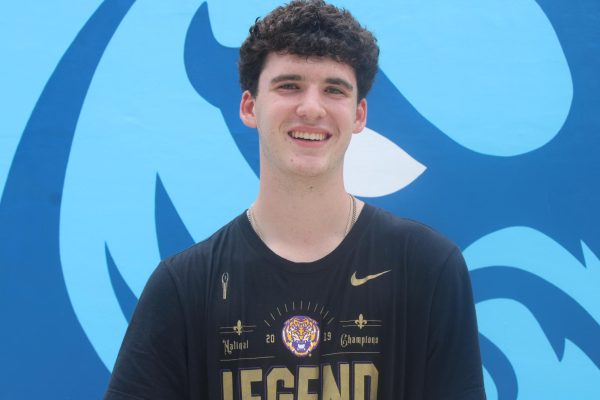The Power of Politics in Sports
December 11, 2022
Through the years, many athletes have made small statements on major topics such as violence, racism and injustice in sports. On Sep. 1, 2016, statements in sports games would change forever when former San Francisco 49ers quarterback Colin Kaepernick kneeled during the national anthem. This would spark one of the most controversial topics in sports history.
Kaepernick originally started his movement during the National Football League’s preseason on Aug. 14, 2016, when he sat on the bench during the anthem. However, many people did not notice this or think much of it, as Kaepernick was not playing and was not dressed for the game.
On Aug. 26, 2016, during the 49er’s last preseason game, fans noticed he kneeled during the anthem which led many to question him. Kaepernick responded that he did not want to stand for the flag of a country that accepted racism and discrimination toward African Americans. Kaepernick said the issue reached beyond football and claimed he would feel selfish toward his people since unarmed African Americans were being murdered in the streets and those committing these crimes were getting away with it.
On Sep. 1, 2016, the news went nuclear as Kaepernick took a knee with teammate Eric Reid, starting controversy as Kaepernick received thousands of boos from Chargers’ fans. Kaepernick said the knee was out of respect for his fallen people, as soldiers take knees when one of their fellow soldiers dies. Kaepernick also donated one million dollars to charities such as HOME, (Helping Oppressed Mothers Endure), Kaepernick expressed how he was not anti-American, he just wanted to bring the issue of racism to light. This inspired other players around the league to kneel, even though organizations of the teams and the NFL commissioner advised players not to do so.
After the 2016 season, the 49ers finished with two wins and 14 losses and Kaepernick opted out of his contract, looking to sign with another team. However, many teams did not want the controversy attached to their name and refused to sign him. Kaepernick started the major political statements in professional sports, but his career ultimately ended due to it. Public opinion of him changed swiftly and dramatically, as just the year before the controversy, Kaepernick had the highest-selling NFL jersey.
There were athletes before Kaepernick who had important political statements in sports. For example, Tommie Smith and John Carlos from the United States team in the 1968 Olympics, both placed top three in the 200-meter race and raised their hand with black gloves when presented on the stage to create awareness of the injustices towards African Americans and poverty.
In late December 2014, a few Saint Louis Rams players came out of the tunnel before the game with their hands raised to bring awareness to the “hands up don’t shoot” movement.
During the 2020 pandemic, there were enormous protests against police in the wake of George Floyd’s death. This created the BLM, Black Lives Matter, movement, sparking protests and riots globally. These protests were prominent during the NBA 2020 bubble playoffs season, as players were able to make the name on their jerseys to represent the ongoing events. Most players would have sayings along the lines of: “Black Lives Matter,” “Equality,” “How many more,” “Say their names” and “Say her name.” Most players then kneeled during the national anthem; some even participated in peaceful protests.
Racism is very much real and a prevalent problem that affects people in their day-to-day lives. This is why athletes have now been making more political statements in their games, as they understand the power and influence they have on their fans and the world. These athletes aim to make the world a better place and publicly show support for their causes. These athletes have a right to do this, as there needs to be a correction in the injustice minorities have to face every day.









